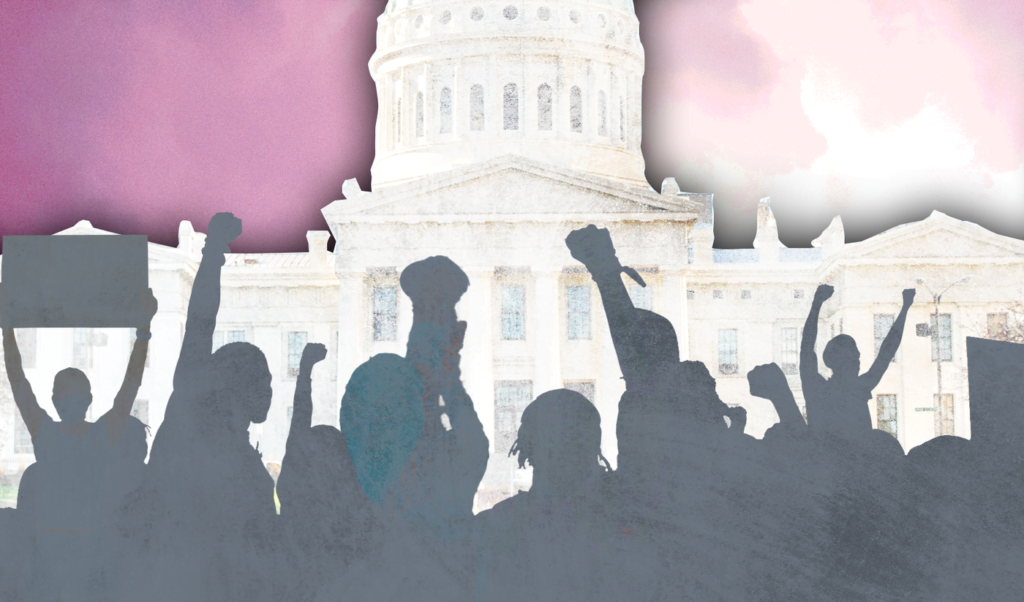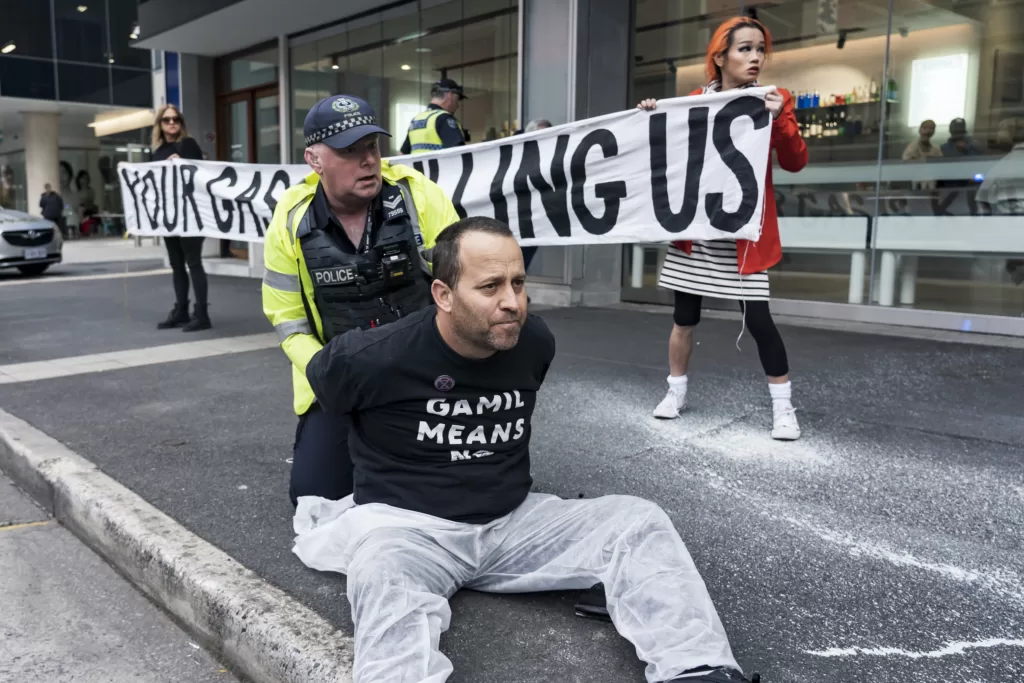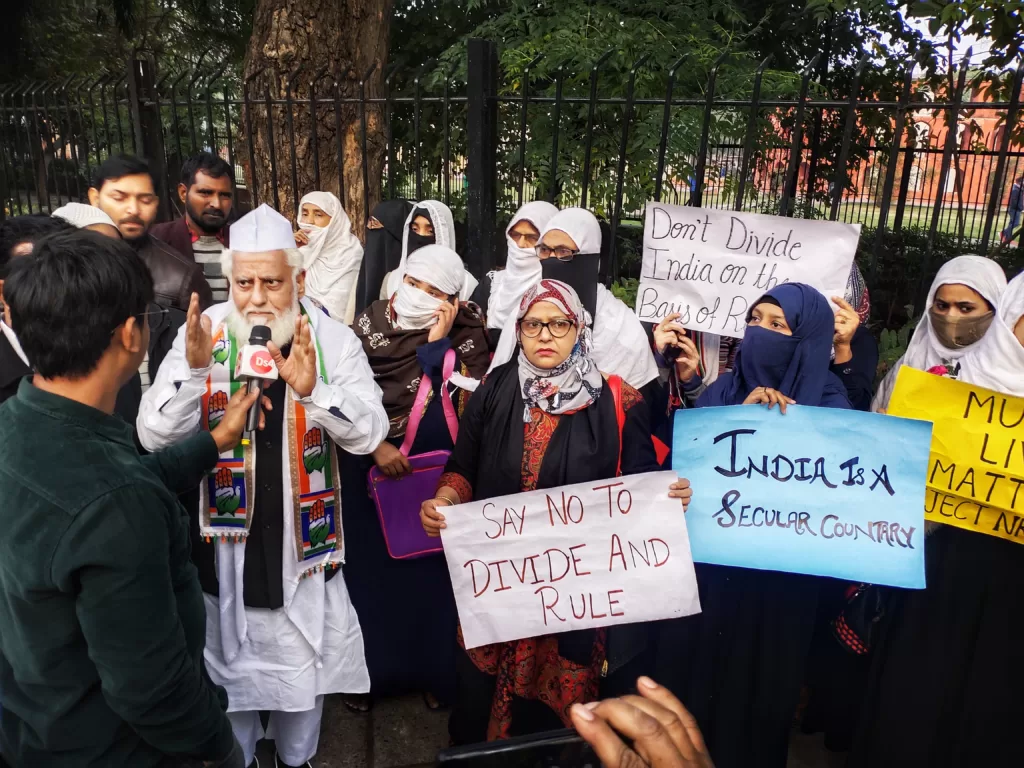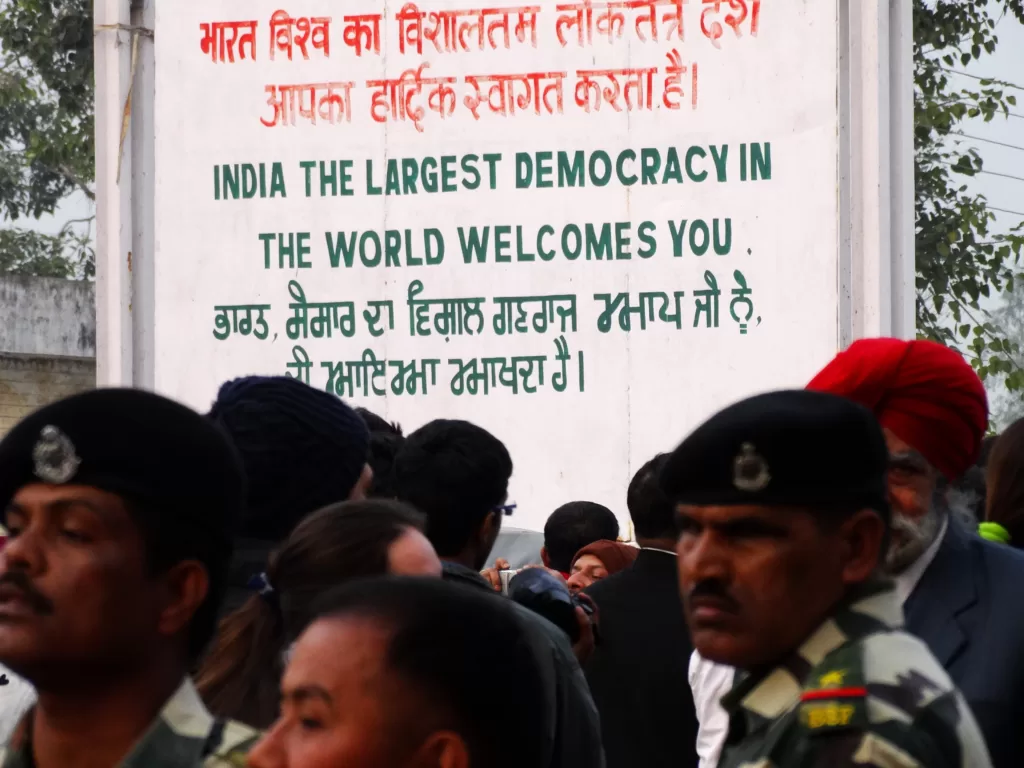Border security is used in democracies like the US to silence advocates and threaten democracy.
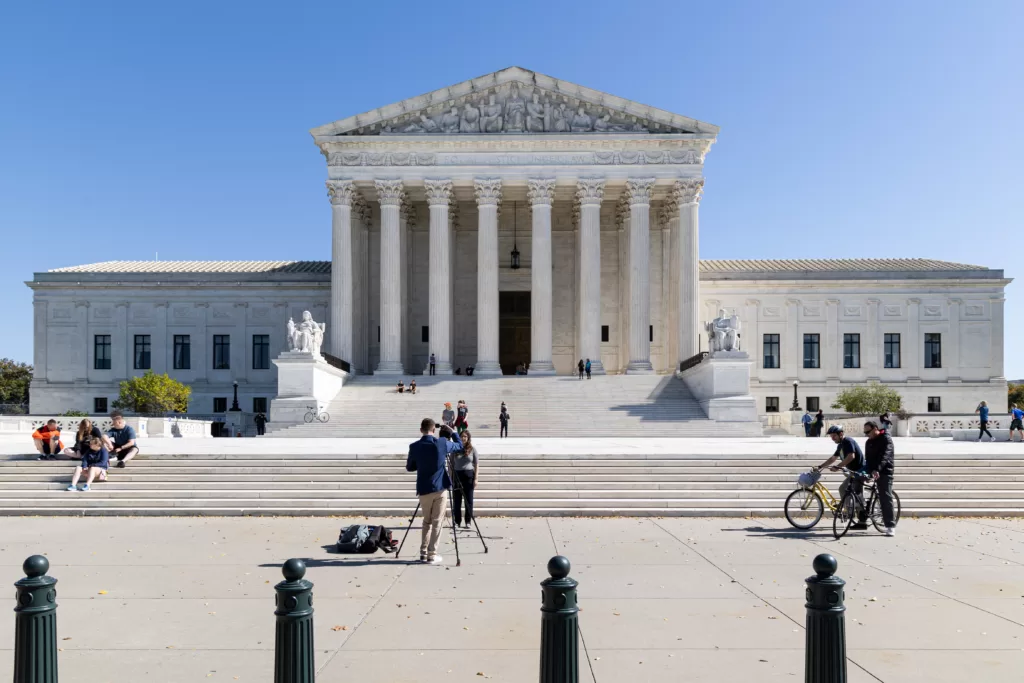 A recent US Supreme Court decision upheld a law that allows the federal government to prosecute people for assisting undocumented immigrants. : Billy Wilson (Flickr) CC BY-NC 2.0
A recent US Supreme Court decision upheld a law that allows the federal government to prosecute people for assisting undocumented immigrants. : Billy Wilson (Flickr) CC BY-NC 2.0
Border security is used in democracies like the US to silence advocates and threaten democracy.
The US and other democratic nations have weaponised border security to undermine human rights – and ultimately democracy – through the use of regressive laws.
A recent US Supreme Court decision upheld a law that allows the federal government to prosecute people for assisting undocumented immigrants. The decision in United States v Hansen raises concerns among lawyers, advocates and journalists that it could limit free speech and deter human rights advocacy.
The term ‘regressive governance’ describes broad action that suppresses human rights by taking strategic aim at vulnerable groups to undermine the rule of law, thus securing the power of regressive leadership. This can happen not just in fascist and theocratic regimes, but also in supposedly democratic countries, which are supposed to afford protections to free speech and human rights.
They do this by implementing policies designed to have a chilling effect on human rights law and activism. The goal is to eliminate resistance, and thereby entrench regressive law and policy within all systems of power and governance.
Leaders around the world seem to be observing and copying one another in how they pursue their regressive agendas — scaling back rights, ignoring international legal obligations and reversing domestic laws that would protect speech and activism aimed at exposing and countering this trend.
Criminalising migrants and their advocates
Regressive governments typically focus on migrants, crafting narratives that prey on the fear of newcomers to justify increasing border security. They then move to militarise the interior by expanding the authority of border regimes. They criminalise migrants and their advocates before ultimately undermining the rights of other vulnerable groups.
In Greece, the authorities have repeatedly violated international law by pushing back refugees. Recently they have been accused of causing the deaths of more than 500 migrants crossing the Mediterranean. The European Border and Coast Guard Agency, or Frontex, the joint European border monitoring agency, threatened to suspend its activities in Greece after it determined that the Greek government had committed serial violations of fundamental rights of migrants and international protection obligations.
In the US, conservative governors are weaponising the issue of migrants, refusing people entry at the southern border and shipping groups of migrants to states and cities governed by liberal Democrats. Such tactics blatantly challenge the plenary power of the federal government over immigration and risk the lives of human beings for political gain.
The focus on migration allows leaders to exploit the latitude that international and domestic law ostensibly grants leaders within the arenas of sovereign authority, national and border security and foreign affairs. They push narratives suggesting that migrants threaten security and the economy – narratives that have been continually disproved, even by conservative groups.
Within these scenarios, some migrants are admitted, while others are not. The distinction exposes the racial prejudice, nationalism and xenophobia that are inextricably entwined with and benefit regressive governance.
For example, during the COVID-19 pandemic the US instrumentalised public health laws to expel migrants and asylum seekers – but exempted Ukrainian citizens. In July this year, Tunisia expelled migrants from sub-Saharan African countries, exposing them to deadly heat and dehydration in the desert, days after it had struck a deal with the EU to facilitate the return of migrants to countries of origin.
Reprisals for rights defenders
Human rights advocates and those who share knowledge and information with the public have been increasingly targeted and their work criminalised. In the US, migrant advocates were stopped, held, and threatened at ports of entry and in transit to the US. Regressive actors in the US have threatened immigration lawyers with prosecution for everything from obstruction to human trafficking, and have used Interpol flags and other border security mechanisms to harass and detain them. Cases like Hansen use the rule of law to endorse this type of reprisal.
Hungary has criminalised providing assistance to asylum seekers. Conservative leaders in Italy and Greece have prosecuted immigrant rights advocates – even those following their professional and legal obligations, like ship captains who are required to respond to ships in distress. The UN Special Rapporteur on human rights defenders has documented that conservative governments are regularly targeting migrant rights defenders for reprisal.
The US Supreme Court has consistently said that the media in particular should not be concerned about risking prosecution by publishing material critical of the government. This is the legal concept of prior restraint. Legal principles that work to prohibit laws that have the effect of chilling speech are deeply respected in genuine democracies, which understand that democracy depends on an informed and educated public.
The US has long criticised other governments that criminalise or harass media and human rights defenders, calling out these acts as threats to democracy, yet in Hansen the government does the same, with judicial approval.
As the two dissenting justices noted in the case, judiciaries in true democracies strike overbroad laws that have the effect of limiting advocacy, journalism and free speech. A true democracy would require legislators to rewrite the law more narrowly. Instead, this court left the law intact, effectively wagging a finger at the federal government and asking it to promise never to apply the law too broadly.
Deterrence is the goal
Criminalising migrant rights speech and advocacy – like criminalising migration and permitting government actors to actively harm migrants – is a signpost of regressive governance and considered out of bounds in democratic nations that respect international law. Wielding the machinery of law to make rights defenders afraid of assisting migrants is the intention. It is designed not just to deter migration, but also to deter challenges to regressive governance more broadly.
The impediments imposed by regressive governments are meant to make advocates for migrants and human rights think twice before using their limited resources to act. They are aimed at keeping advocates from entering into or remaining in the profession, because human rights advocates are most likely to expose and oppose their regressive actions, and migrant rights advocates are often the first to notice regressive governance.
Democracy depends on citizens challenging threats to government encroachment on rights, especially threats coming from ‘inside the house’. Regressive governments threaten democracy from within. Proponents of democracy have a narrow window left to elect representatives who will work to unravel regressive laws and policies and enact laws to protect the groups that have been targeted before regressive governance limits their ability to participate in democratic processes altogether.
Dina Francesca Haynes is a law professor at New England Law, Boston, US, where she teaches and writes about migration, human rights and regressive governance. She has also taught at Georgetown University Law Center and American University’s Washington College of Law, and worked as an international human rights lawyer for the UN and other international organisations. Prof Haynes is also the Founder of refugee projects.org, a non-profit focused on direct legal representation and policy advocacy in refugee and humanitarian law.
Originally published under Creative Commons by 360info™.


